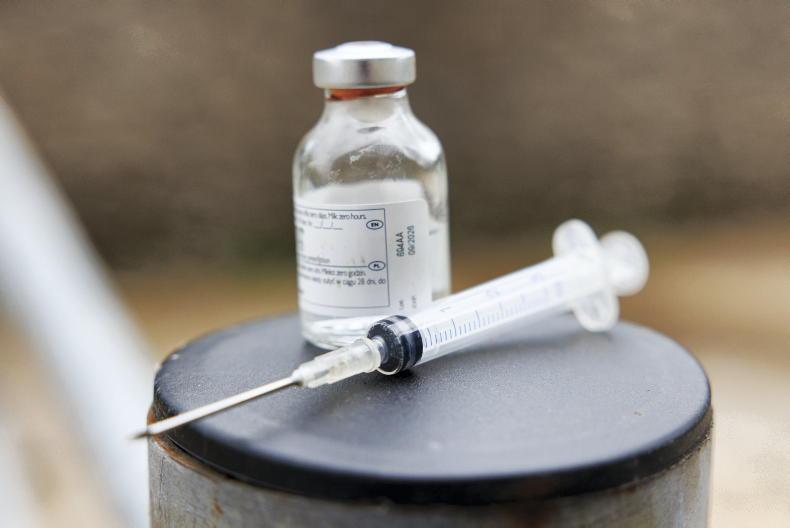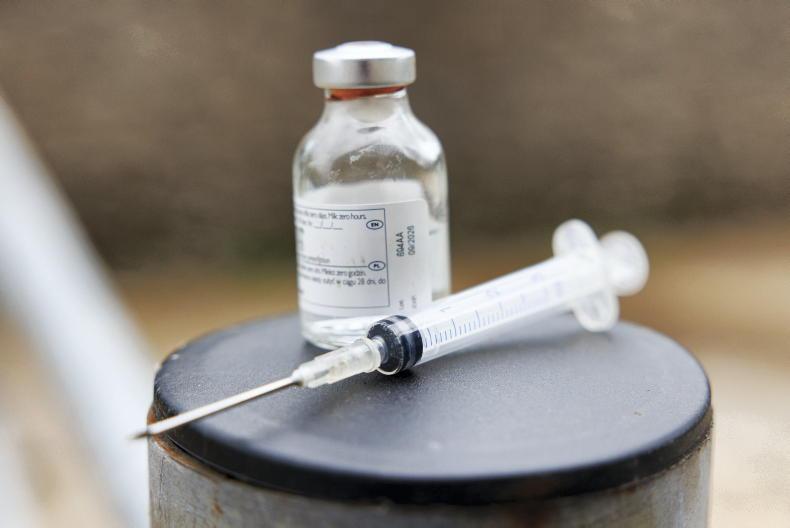McIlrath new Suffolk CEO
Ballymena man Robin McIlrath is to take up the position of chief executive of the Suffolk Sheep Society from 1 July 2016, replacing Lewis McClinton, who is leaving the role later this year.
McIlrath comes to the position having previously worked in a temporary role for the Livestock and Meat Commission. He will be based in the Society’s main office in Ballymena Business Centre, Galgorm.
Slow transition
to Ballykelly
Speaking at the first meeting of the new Stormont Agriculture, Environment and Rural Affairs committee last week, DAERA permanent secretary Noel Lavery insisted that the move of the Department’s headquarters to Ballykelly remains on target.
A pre-design phase has started, and the aim is to have the new site open, and 250 staff in place, by December 2017. That is less than the original plan to have 400 staff there by that date. It could be as late as 2029 before the transition of 600 staff to the new headquarters is complete.
Coming on top of the recent civil service-wide voluntary exit scheme when DARD lost 16% of its staff, Lavery acknowledged that it is of concern that DAERA will lose more experience and expertise as some employees currently in Belfast do not want to move to the northwest. “We need a long transition to deal with the loss of staff, but it is our job to get on with it,” he said.
To manage the cuts to budgets and staffing numbers, opening times in DAERA offices have been reduced, and some work areas have been stopped. “Digital is part of our answer. It is also incumbent on us to become more efficient,” said Lavery.
Crusade
Commenting on the Ballykelly move, new committee member and Alliance Party leader David Ford said: “While we are not opposed to the decentralisation of jobs, at a time when the public purse strings are being tightened across the board, the cost of this move should be redirected to frontline services and not spent on a long, expensive and frankly ridiculous personal crusade.”
CAFRE Level
II open
The CAFRE Agricultural Business Operations (Level II Certificate) Course will open for enrolments on Thursday 9 June and will close at 4pm on Thursday 7 July.
The courses were initially designed to allow applicants to be eligible to make a claim to the young farmer scheme or the regional reserve (both require an applicant to have an agriculture-related qualification to at least Level II). There is nothing to stop a new applicant making a claim for the young farmers top-up or regional reserve in 2017. In addition, some people just want to do the level II course to gain a better understanding of farming.
The classes will begin in early October and run weekly for 20 weeks. All of the classes will be based in one of the three CAFRE Campuses – Greenmount, Loughry and Enniskillen. Classes will be sector based – dairying, beef, sheep, crops, arable/commercial horticulture and poultry.
To book a place go to the CAFRE website: www.cafre.ac.uk/young-farmers-payment-regional-reserve/.
The cost of the course is £150.00, payable to CAFRE Finance Administration at Greenmount Campus by Friday 19 August 2016.
Further details about how to pay the course fee will be provided when you book your place.
Ireland set for 10 million by 2050
At present there are 6.5m people living on this island (4.7m south; 1.8m north) but with the fastest-growing population in Europe south of the Irish border, the total population on the island could hit 10m by 2050.
According to Fergal O’Brien, chief economist with the Irish Business and Employers Confederation (IBEC), that level of population should change how we think about Ireland as a market for agri-food companies.
Speaking at a dinner organised by financial services company Deloitte in Hillsborough Castle last week, O’Brien described the growth as “incredibly positive”. However, he also outlined concerns that government spending on infrastructure is being cut, when actually more money should be invested in improving our transport network.
On Brexit, O’Brien said that Europe would be weaker without the UK, and that a vote by the UK to leave would lead to four to six years of uncertainty.
Uncertainty
“Business hates uncertainty. Our economies are so closely linked. It would have a big influence on the economy in the south as well,” said O’Brien.
With some indigenous Irish companies doing most of their business in the UK, he said there was a danger that these companies could decide to move to Britain in a Brexit scenario, and especially given that many of the tax policies in the UK look quite attractive at present.
Read more
Full coverage: Brexit
McIlrath new Suffolk CEO
Ballymena man Robin McIlrath is to take up the position of chief executive of the Suffolk Sheep Society from 1 July 2016, replacing Lewis McClinton, who is leaving the role later this year.
McIlrath comes to the position having previously worked in a temporary role for the Livestock and Meat Commission. He will be based in the Society’s main office in Ballymena Business Centre, Galgorm.
Slow transition
to Ballykelly
Speaking at the first meeting of the new Stormont Agriculture, Environment and Rural Affairs committee last week, DAERA permanent secretary Noel Lavery insisted that the move of the Department’s headquarters to Ballykelly remains on target.
A pre-design phase has started, and the aim is to have the new site open, and 250 staff in place, by December 2017. That is less than the original plan to have 400 staff there by that date. It could be as late as 2029 before the transition of 600 staff to the new headquarters is complete.
Coming on top of the recent civil service-wide voluntary exit scheme when DARD lost 16% of its staff, Lavery acknowledged that it is of concern that DAERA will lose more experience and expertise as some employees currently in Belfast do not want to move to the northwest. “We need a long transition to deal with the loss of staff, but it is our job to get on with it,” he said.
To manage the cuts to budgets and staffing numbers, opening times in DAERA offices have been reduced, and some work areas have been stopped. “Digital is part of our answer. It is also incumbent on us to become more efficient,” said Lavery.
Crusade
Commenting on the Ballykelly move, new committee member and Alliance Party leader David Ford said: “While we are not opposed to the decentralisation of jobs, at a time when the public purse strings are being tightened across the board, the cost of this move should be redirected to frontline services and not spent on a long, expensive and frankly ridiculous personal crusade.”
CAFRE Level
II open
The CAFRE Agricultural Business Operations (Level II Certificate) Course will open for enrolments on Thursday 9 June and will close at 4pm on Thursday 7 July.
The courses were initially designed to allow applicants to be eligible to make a claim to the young farmer scheme or the regional reserve (both require an applicant to have an agriculture-related qualification to at least Level II). There is nothing to stop a new applicant making a claim for the young farmers top-up or regional reserve in 2017. In addition, some people just want to do the level II course to gain a better understanding of farming.
The classes will begin in early October and run weekly for 20 weeks. All of the classes will be based in one of the three CAFRE Campuses – Greenmount, Loughry and Enniskillen. Classes will be sector based – dairying, beef, sheep, crops, arable/commercial horticulture and poultry.
To book a place go to the CAFRE website: www.cafre.ac.uk/young-farmers-payment-regional-reserve/.
The cost of the course is £150.00, payable to CAFRE Finance Administration at Greenmount Campus by Friday 19 August 2016.
Further details about how to pay the course fee will be provided when you book your place.
Ireland set for 10 million by 2050
At present there are 6.5m people living on this island (4.7m south; 1.8m north) but with the fastest-growing population in Europe south of the Irish border, the total population on the island could hit 10m by 2050.
According to Fergal O’Brien, chief economist with the Irish Business and Employers Confederation (IBEC), that level of population should change how we think about Ireland as a market for agri-food companies.
Speaking at a dinner organised by financial services company Deloitte in Hillsborough Castle last week, O’Brien described the growth as “incredibly positive”. However, he also outlined concerns that government spending on infrastructure is being cut, when actually more money should be invested in improving our transport network.
On Brexit, O’Brien said that Europe would be weaker without the UK, and that a vote by the UK to leave would lead to four to six years of uncertainty.
Uncertainty
“Business hates uncertainty. Our economies are so closely linked. It would have a big influence on the economy in the south as well,” said O’Brien.
With some indigenous Irish companies doing most of their business in the UK, he said there was a danger that these companies could decide to move to Britain in a Brexit scenario, and especially given that many of the tax policies in the UK look quite attractive at present.
Read more
Full coverage: Brexit









SHARING OPTIONS